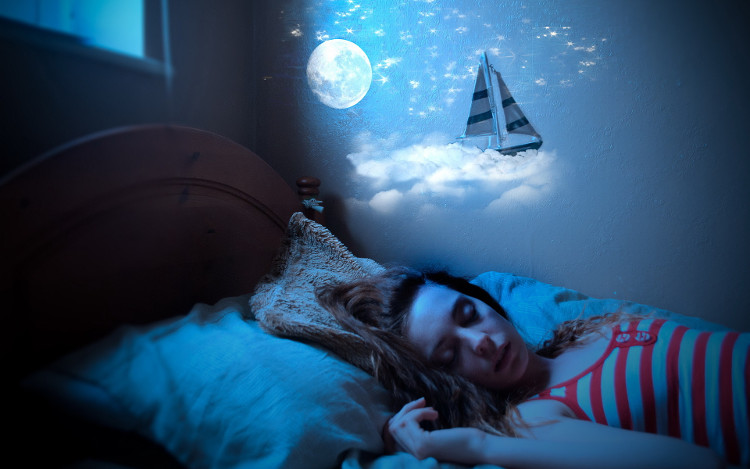This is the part that makes dreams when we sleep
Scientists have just made a new study that is considered the most important study of dreams.
Scientists at the University of Wisconsin-Madison have identified a "hot region" of electroencephalic activity in the brain that helps us have dreams.
Many dreams occur outside REM (the area of the brain that rests when we sleep), making it impossible to remember the dream when we wake up.
The latest research by scientists not only helps us better understand how dreams form and time, but also tells how to induce sleep and how to control the dreams of the brain, thereby Effective remedy for people with sleeplessness and insomnia.
In addition, this study also shows that when awake, the brain is constantly doing things when sleeping, is to recreate someone's face, making us feel like we have encountered it in the world of dream
"We compared the change in the brain when we slept and awake, and found that the brain when awake sometimes works just like when we sleep. In this way, we can study it. The brain region is conscious of sleeping, eliminating areas of ambiguous activity such as sleep and wake them all the same, ' said psychologist Giulio Tononi, one of the project's researchers.
A total of 46 volunteers participated in the study. They just slept in the Wisconsin lab and put on a 256-electrode cap to measure brain activity and electroencephalogram. At different times, participants are awakened and asked about their dreams.

The dream is made up of a region behind the brain, it is like the actual experience that we have experienced during the day.
Through this experiment, the researchers found the "hot zone" in the back of the brain , helping the brain process images and integrate the senses of the human body to create the truest dream possible.
By monitoring this hot zone and waking up volunteers to participate in the study, scientists say, 87% of sleep time is the brain that makes dreams. Accordingly, when we sleep and wake up, even though we don't remember anything about the dream, in fact we still dream.
Another experiment is also in the framework of research, scientists find a link between the activities of the brain between when we sleep and wake, as well as find out which parts of the brain work when we try to identify a mold. some face.
"This shows that dreams are formed from brain regions similar to when we awaken and try to remember a particular content and the dream is that experiences have actually occurred in reality, no must be a new creation or blend of experiences , " Siclari said.
Small experiments are related to the main experiment, such as the activity of the prefrontal cortex before the dream, the part of the brain related to the memory and the recall of dreams also contribute to clarifying this problem.
Research is just the beginning of using dream studies for other scientific purposes, but it also helps us learn more about dreams, such as just a small area of the brain to create. The dream is as conscious as when we wake up.
Many future studies may be based on the results of this study to learn more about whether dreams help us synthesize and process the events that happened during the day.
Christoph Nissen, a researcher from the University of Switzerland's Psychiatry University, said the new electroencephalogram could open up treatments for patients with sleeplessness or sleeplessness, and can find ways to help them fall. Sleep easier.
"The importance of this study goes far beyond its long-term limitation. It can discover dreams in fast sleep naps and some other aspects that no one has ever studied before." , said scientist Mark Blagrove of Swansea University's sleep research institute.
- Things you may not know about the dream
- Decode the mystery that happens in sleep
- The strangeness of dreams
- Do you know: Sleep more dreamily to sex?
- How to control your dream?
- Set aside the spring to sleep, but what do the cat bosses dream about?
- What is the brain doing when we dream?
- The truth about dreams
- Dream training meets aliens
- The dream indicates illness
- Why do we say love to sleep?
- Decode the phenomenon of saying dream when sleeping
 Green tea cleans teeth better than mouthwash?
Green tea cleans teeth better than mouthwash? Death kiss: This is why you should not let anyone kiss your baby's lips
Death kiss: This is why you should not let anyone kiss your baby's lips What is salmonellosis?
What is salmonellosis? Caution should be exercised when using aloe vera through eating and drinking
Caution should be exercised when using aloe vera through eating and drinking